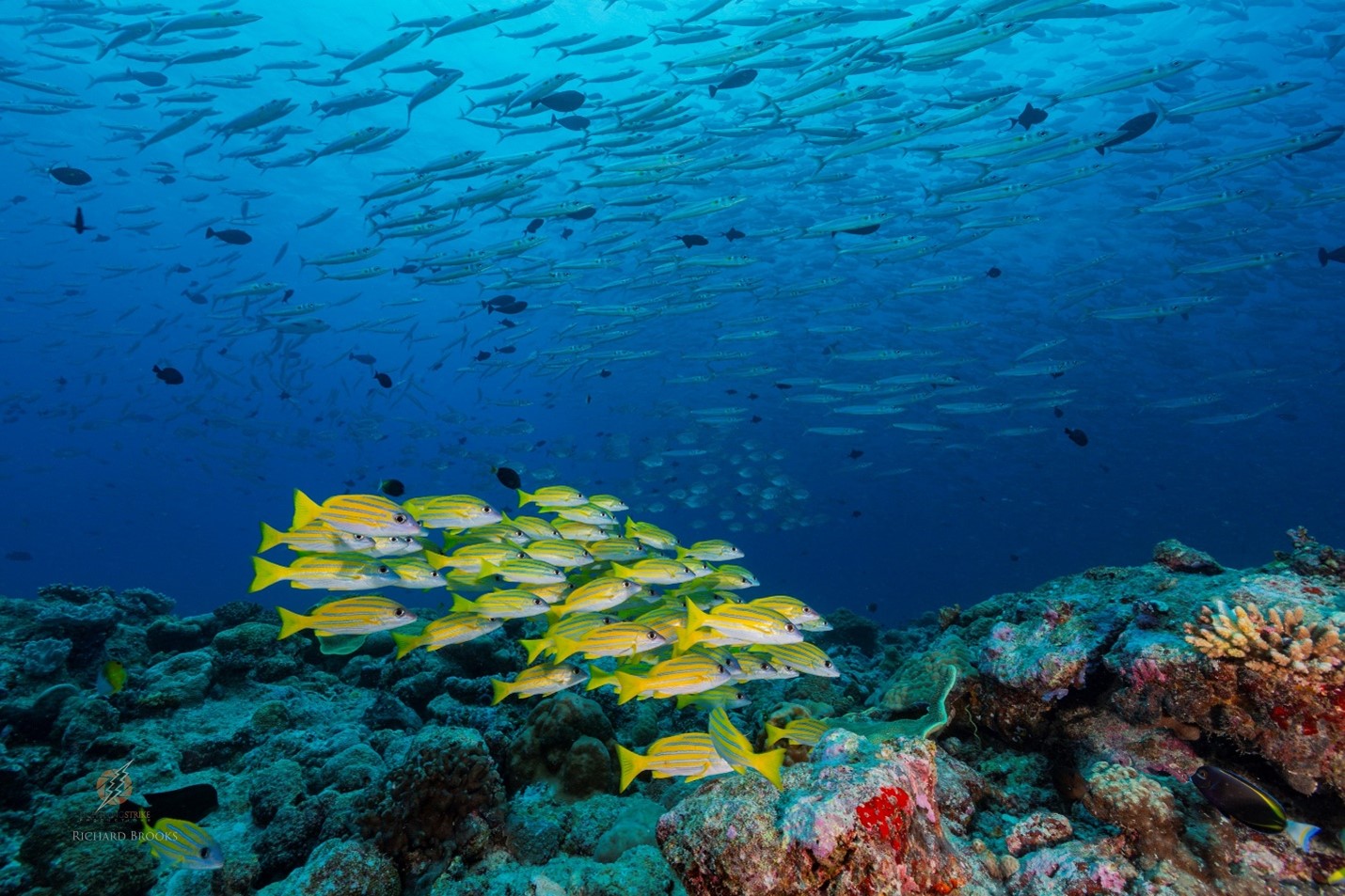Seafood groups representing a third of the world’s tuna trade as well as major supermarket suppliers are the latest groups to call for a pause on deep-sea mining, after a new study published today showed tropical tuna fishing grounds in the Pacific would overlap with mining plans.
The Global Tuna Alliance partners, which account for 32 percent of global tuna sales and represent Sainsbury’s, Waitrose, Asda, Marks & Spencer and Aldi in the UK, joined the Sustainable Seafood Coalition, made up of 45 British seafood firms, to condemn the rush to mine the seabed.
A growing list of countries have also called for a halt to deep-sea mining, at a key moment for the fledgling industry as the International Seabed Authority (ISA) meets this week to determine rules for mining – or, potentially, to press pause on the endeavour.
The seafood groups said in a letter released alongside the study that they were “deeply concerned” about the potential impacts of deep-sea mining on sustainable fisheries, given the “significant overlap” between future fishing grounds and areas licensed for mineral exploration.
The study, published in Nature npj Ocean Sustainability, suggests that some of the world’s most valuable fisheries will increasingly overlap with deep-sea mining operations as warming oceans alter the tuna’s range.
It focuses on the Clarion-Clipperton Zone (CCZ), an area of the Pacific Ocean south-east of Hawaii containing 1.1m sq km (424,712 sq miles) of exploration contracts.
The study looked at future biomass of tropical tuna under two climate crisis scenarios: moderate and high emissions. The total biomass for bigeye, skipjack and yellowfish tuna in the CCZ is predicted to increase by 10-11 percent, 30-31 percent and by 23 percent respectively by the mid-21st century.
This could result in increasing conflict between the two industries if more tuna catches are carried out in mining areas, researchers said.
Prof Douglas McCauley, a co-author of the study from the University of California, Santa Barbara and the director of the Benioff Ocean Science Laboratory, said: “These fishing grounds may be distant, but the food they produce is consumed by millions. We would be horrified at dumping mining waste across our food-producing regions on land. We shouldn’t be rushing into a decision that could significantly harm ocean ecosystems essential to planetary health and global food security.”
Tuna populations in the CCZ could be affected by deep-sea mining in different ways, researchers said, although the effect of each has yet to be calculated. The generation of sediment plumes that can travel long distances could prevent feeding or visual communication; potentially toxic metals could be absorbed by species; and noise and light pollution could disrupt behaviour, cause stress and force changes in migratory routes.
Daniel Suddaby, the executive director at Global Tuna Alliance, said he was concerned the world was entering “uncharted territory” of risks from deep-sea mining.
“From threats of prey food shortages due to disrupted midwater ecosystems to the potential upheaval of migration patterns caused by mining disturbances, we must navigate this uncertain landscape with caution. With climate change scenarios further complicating the picture, we cannot underestimate the stakes involved.”
The letter calls for a pause on deep-sea mining until there is a “clear understanding” of the potential impacts, and urged the ISA to agree “strong, scientifically grounded regulations” before granting any exploration contracts.
SOURCE: THE GUARDIAN/PACNEWS














